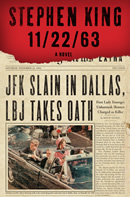“Have dinner with me.”
Elizabeth Chapman stopped winding the string of Christmas lights she held in her hands. She fixed her stare, eyebrows raised, on the man in front of her.
Harrison held her gaze for a long moment, sighed, and shrugged.“Just thought I’d ask,” he said.
He struggled to hide his disappointment, she observed. He turned to pick up the stepladder and move it further down the wall of her bookstore. They were taking down the garlands and bows and lights now that it was the middle of January. Liz had been meaning to get to the decorations a week ago, and when Harrison dropped in at the end of the workday, she had maneuvered him into staying and helping her with the chore.
Liz figured her owed her.
The silence tightened around them now, and she laid a hand on Harrison’s arm. She felt the muscle tense for a moment and then relax.
She had lowered half of the overhead lights when the last customer left, and now the bookstore was dim and quiet except for a c.d. playing on the audio system. Oak bookcases, decorative woodwork, and original tin ceilings graced the store. Books filled every nook and cranny—one of several retail spaces carved from a former five and dime store that had once stretched half a block on Main Street in East Mercy.
The c.d. played itself out with a final whisper of flute and acoustic guitar, and the silence made the conversation even more awkward. Liz cleared her throat.
“Harry . . .”
He looked back at her, hoisted the ladder, gave a short laugh. “Never mind,” he said. “I just thought we could grab a bite at the Hacienda. You know, two old friends hanging out. No big deal. Really.”
Liz watched as he slid the metal stepladder into place. He looked solid and dependable in his faded blue jeans and flannel shirt, still as handsome as he’d been in high school. Unfortunately, Harrison wasn’t as dependable as he looked, she thought.
If he had been, they would probably still be married.
He held the ladder and she climbed up to the top to grab the next length of garland and lights. The dull green pieces of artificial evergreen boughs poked her arms and smelled dusty. From the floor, they looked so pretty and fresh. From this close, they showed their true state—old, worn, and flattened. Kinda the way she felt, to be honest.
She sighed. Maybe the mid-winter blues were getting to her already. She unplugged the string of lights from the adjacent section and let the whole thing fall in a heap below the ladder.
“Only two more sections to go,” she said. Thank God. The sooner she and Harrison were done, the better. They had been joking around for much of the time, and now he had to go and ruin it by asking her out to dinner.
She climbed down the ladder, bumping against him at the bottom. “Sorry.” Guilt crept over her—not because she’d bumped into him, but because he’d worked so hard and she’d refused his dinner invitation. Was she being a tad ungrateful?
Guilt-smuilt, she thought. When she’d asked him to help take this stuff down, she hadn’t promised him anything. Why should she feel beholden to him? She was only protecting herself, she thought. And then, who could blame her?
She stepped away from Harry’s solid warmth and questioning eyes, clamped her mouth shut, and looked pointedly toward the last remaining section of garland.
Wordlessly, Harry moved the ladder to the back of the bookstore and angled it over the philosophy section. But he gave her that look. Liz glanced down at her watch. He had been helping her for over two hours without complaint. He was such a good guy, really, and what thanks did she give him? A pat on the arm, and a “good boy, Harry?”
She pinched the bridge of her nose. Don’t give in, she told herself. It would be a mistake. . .
But it was no use. He could always get to her like this. “Okay, I’ll have dinner with you,” she said and added, “but it’s not a date and don’t go getting any ideas. We are strictly friends. Got it?”
He grinned. “Well, since you asked so graciously…”
“You asked me!”
“Okay, okay, don’t get your panties in a bunch. So, the Hacienda’s alright, right? You’ve always loved Mexican food.”
Oh my god. “No, Harry,” she said, drawing the words out slowly. “You love Mexican food. It gives me heartburn.”
Liz didn’t know whether to be more irritated at the panties reference or that he never remembered her dislike of cumin and hot chili peppers, and that for her tequila was something best avoided.
“But . . . you love margaritas!”
She shook her head “No, Harry. That’s you.”
“Huh.” He tapped the metal ladder and looked puzzled. “I coulda’ sworn. . .”
This was so typical of him, Liz thought. Everything had always been about him, how he felt, what he liked. Apparently what he’d liked was sleeping with other women.
She grabbed the tangled mess of boughs and lights and marched off to the storeroom. Five years had passed since she’d married and divorced the man, but she’d never really get over it completely—the cheating, the embarrassment, the divorce and the wrecked fabric of her heart that had gradually patched itself together into a semblance of something whole.
Somehow they’d become friends again. In a small town like East Mercy, they were bound to run into each other socially, and over the past year or two they somehow had been able to regain their old camaraderie. He made her laugh. He helped out with tasks like dripping faucets and broken windshield wipers on her car. As long as she didn’t think about their marriage, they got along just fine
.
Now he had asked her out to dinner, and something about the invitation struck her as crossing over an invisible line between their good friendship and their disastrous marriage.
Liz knew she should probably go out there and tell him she’d changed her mind. Why confuse things? Irritably, she threw the decorations against a wall and decided to sort them in the morning or, better yet, ask one of her employees to do it. That was one of the perks of owning her business—she got to make the rules. If only it had been that way in her marriage.
A well-worn memory surfaced just then. She and Harrison had been in the middle of the confrontation: he had just confessed to cheating on her not once, not twice, but three times with three different women over the course of their year-long marriage. One-night stands, he claimed. Didn’t mean a thing. . . honest. Honest? Was he kidding?
She’d demanded an explanation. Why had he found it necessary to engage in these sexual encounters? Didn’t she please him in bed? Didn’t he love her? He’d made promises!
He had let her rant and rave for twenty minutes, and then he had said, “I guess it’s because you have such high expectations, Liz. I guess I just wanted to be with someone, even for just an hour or two, who didn’t judge me, didn’t analyze every friggin’look on my face or word out of my mouth.”
She had stared at him, speechless. How dare he turn this around onto her? How dare he make this her fault? She had stomped out of the room and locked herself in the bathroom until she heard the door slam and his truck engine rev and then fade into the night air.
Now, years later and safe in the confines of her storeroom, Liz frowned. She had to admit that she thoroughly enjoyed her role as owner and manager of the Brass Bell Bookstore, making the important decisions, and being in control of her professional life. If she had an idea, she went ahead and tried it. If she knew something had to be done, she did it. Everything about the business was firmly in her control, and she didn’t have to answer to anyone—except her customers and the IRS, she supposed.
Occasionally, she had run into staffing problems when she hired someone who, after the usual month-long learning period, could not manage to follow store procedures properly or whose attitude became sullen or shifty over time. More than once, these employees had accused her of being a control freak or a perfectionist. This was her business, though, and she had found two or three excellent employees who didn’t seem to find her overly demanding.
Still, she recognized that when it came to the bookstore, she expected the staff to follow her rules and procedures precisely and cheerfully. If that was too controlling, well, so be it, she figured.
But, she pondered, not for the first time, what had gone wrong with their marriage. She wouldn’t let Harry comnpletely blame his wandering, um, eye, on her, but what if her attitude had contributed to the breakup of their marriage? It wouldn’t have been the first time they had broken up, or the first time he had accused her of trying to run his life, for that matter.
Back in high school when she and Harry fell in love the first time, she had been so enchanted with the idea of having a boyfriend that she wanted everything to be perfect. She imagined every detail and made sure Harry knew what was expected of him.
They would sip hot chocolate at the diner after football games, she said. They would take long walks in the woods in the summer and carve their initials on a tree, she said. She would wear his class ring, she said. They would share kisses beneath the mistletoe at Christmas. He would buy her jewelry on her birthday and stuffed animals for Valentine’s Day. They would go to the spring prom, and afterward, they would make out down by the lake (he didn’t mind that one, oh no).
And her plans didn’t end there. She decided that they would attend the state university together, graduate in four years, and then get married. They would buy an old house and fix it up and have three or four children. When the kids were young, they would drive a minivan, but later on would trade it in for something sportier. After retirement, they would travel, see the world, and then move to Florida.
At eighteen, she had their life all planned out.
Problem was, Harrison didn’t want to go to college. He wanted to stay in East Mercy and work for his dad in the family ski business. Liz nagged him into applying to the University of Maine anyway, and he was miserable when his acceptance letter arrived, she remembered.
He bought the jewelry and stuffed animals she expected, but she had to remind him to do it every time. She complained when he wanted to spend time with his friends. By the time spring prom had rolled around, he had started flirting with other girls, she’d broken up with him, and she’d spent the evening of the prom watching Carrie and crying into big bowls of chocolate swirl ice-cream.
Now, hidden in the storeroom, Liz sat down against the wall and hugged her knees. She had gotten over him, eventually. She graduated from East Mercy High School, went off to college by herself, met a political science major named Malcolm, married him, and moved to D.C. When that marriage ended after a few years, she’d come home to East Mercy.
Liz started the bookstore with her divorce money, reconnected with family and friends . . . and promptly went to bed with Harrison.
He was still a fun-loving, good-looking man who now managed the family ski business–a small slope with ten trails and a single lift on the outskirts of town. They hooked up one night while drinking tequila shots at the Hacienda Bar & Grill—tequila was always a bad idea, and she should have known that nothing good could come of it.
Four years later, they married. A year after that he admitted to cheating on her. The rest was history, she thought. History repeating itself.
“Hey, you okay in here?” Harrison’s voice interrupted her thoughts. “I’m starved. Let’s go eat.” He had managed to remove the remaining section of lights by himself and carried a big armful over to the pile on the floor. “You just going to leave that stuff?” he said.
She waved a hand around and stood up. “Yeah, I’ll get to it tomorrow I guess.” She pushed aside the feelings of sadness and regret that threatened to ruin the evening. All that was in the past, she reasoned with herself. She couldn’t go back and change what had happened in high-school—or in their marriage. It was better to simply accept the present situation and get on with her life.
The Hacienda was a converted granary overlooking the Black River. Liz admired the view of the narrow floodplain and the frozen river edged with spiked branches of scrub brush. Then she spotted the abandoned train depot sagging forlornly on the other side of a dirt parking lot.
What an eyesore, Liz thought. Something really ought to be done about that depot. Half a dozen ideas for converting the space into something useful popped into her head, but they were quickly squelched by a relentless practicality. Nothing would be done with the building for one reason. East Mercy was dying.
Liz scanned the horizon with tears in her eyes. The old train bed wound toward the river in one direction and back toward her section of town in the other. Downtown rooftops poked up through the tree branches across the street, each familiar and homey. Warmth spread throughout her despite the chill in the air and the sadness in her heart. East Mercy did that to her.
The Hacienda was warm from the fireplace in the main dining room, and Liz relaxed with her second glass of chardonnay, laughing at some silly story Harrison told her about teaching first graders to ski. She studied him, noticing how his hair had begun to recede a little, and that his face was thickening around the jowls. His eyes were still dark and dreamy, though. His mouth still turned up at the corners as he talked. She could see why she had fallen in love with him twice already. She supposed the part of her that was eighteen and the part of her that was thirty loved him still.
He finished his story and smiled, reading something in her eyes or her face. “You are beautiful, Liz. Know that?” He leaned toward her over the table, pushing aside the salt and pepper shakers and taking her hand. “You are still the most beautiful girl I ever married.”
He laughed as she snatched her hand away. “Oh, come on. It was just a joke. You know I love you, always have and always will.”
He took her hand again. He looked serious. “It’s true, you know. We had a good thing, and I know I messed up. If I could change anything in my life, it would be the fact that I hurt you. If I could go back and do it over again, I’d try so much harder to be the kind of man you wanted me to be.”
Her heart thawed enough to let him continue, otherwise she would have told him to shut up and not ruin everything by talking about love. He said, “I love being around you. I think you like being around me, too.” He took a deep breath, his eyes searching hers, his voice earnest and vulnerable. “What do you say we try again, Liz? I want to be with you. What do you say?”
She looked at him, seeing in him the boy he once was and the man he had become. She supposed she did love him, but it was a nostalgic kind of love.
She was thirty-seven—no longer believing that love, marriage, and children were her destiny, or that she and Harrison were fated to be together. You make your own destiny, she thought. You make it up as you go along.
“I already have an old house to fix up, Harry,” she said.
“What?”
She picked up her wine glass, held it. “You remember—we were going to get married, fix up an old house, make four babies, and drive a minivan? At least, that’s what I planned.” She gazed at the golden liquid in her glass as if reading in it the past and the future. “Well, I already own an old house. I want to run my bookstore—not run after four children. And you know what? I really like my Saab.”
“That’s it? You don’t want to try again because you like your car?”
Liz gave him a small smile. “It didn’t work with us. You imagine you want a romantic relationship with me, but it didn’t work before and it won’t work now. We are friends, and I have to tell you, Harry,” she paused for effect. “I love having you as my friend. Who else could I get to climb up on that ladder all afternoon?”
“Funny.” He leaned back in his chair and crossed his arms, regarding her for a moment. “No one would pull down that crappy Christmas garland for you, that’s who. You need me, babe. One more chance. That’s all I’m asking.”
She wanted to argue, but didn’t. Why bother to tell him all over again that he had taken her love, wrung it between his lying, cheating hands like a rag, and tossed it aside without a second thought? Why tell him that he had ruined any chance that she would trust him or any man with her heart again?
“Nope. Sorry.” She spread her hands wide. “It’s friendship or nothing.”
He drove her home. He walked her to the door. He helped her out of her coat, and when she turned around, he encircled her waist with his arms. For a moment she leaned against him, her body remembering the contours of his legs, the solidity of his chest, the smell of his soap and his sweat.
He bent his head to whisper in her ear, “We could make love, at least. It would be good, I promise.”
Desire ran down her spine and pooled inside her, a liquid heat. Yes, it would be good.
And bad. She pulled away. “No. But thanks for dinner.”
He stepped back. “That’s it?”
“That’s it,” she nodded.
“Okay, then goodnight.”
He shut the door behind him.
She went to the kitchen, thinking to make a cup of tea, when she heard him open the door again. She looked over her shoulder.
“You’ll fall in love again someday,” Harry said, poking his head through the doorway. “I hope when you do that he’s a better man than me.”
An arrow of tenderness shot through her heart. She reached out to touch him, but the door closed between them. He blew her a kiss through the glass.
“Thank you, Harry,” she whispered and let her hand fall as she watched him trudge down the snow-lined walkway, slam the door of his truck, and roll away with a tap of his horn. Back to the Hacienda.
She put the kettle on the stove, reached for a bag of peppermint tea. Old habits, she thought. Hard to break, she thought, remembering the feel of him pressed up behind her and the disappointment and relief of it when he pulled away. Yes, truly hard to break, she thought, but not impossible, after all.



















You must be logged in to post a comment.